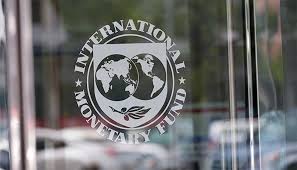The International Monetary Fund and the World Bank have pledged to conduct a thorough update of Ghana’s current debt situation through a new Debt Sustainability Analysis (DSA), which will be presented to its Executive Board when it considers the country’s programme request.
The DSA is forward-looking and considers steps being taken by the member to ensure sustainability over the medium term. In cases where a country’s debt is assessed as unsustainable, the IMF is precluded from providing financing unless the member takes steps to restore debt sustainability, including by seeking a debt restructuring from its creditors.
In a Questions and Answers session, the Fund said when a member country requests financing, it assesses whether the country’s policies are consistent with debt sustainability.
“This assessment is based on a Debt Sustainability Assessment (DSA), conducted jointly by the IMF and World Bank, to determine whether the government is able to meet all its current and future payment obligations”, it added
On whether Ghana is seeking a three-year Extended Credit Facility programme of about $3 billion, the Fund said it is too early to comment on the final form the programme will take, since negotiations for the programme are starting now.
“Ghana requested a similar arrangement in 2014 and which lasted 4 years. However, the level of access and the final program design is ultimately decided by the IMF Executive Board”, it pointed out.
IMF-supported programme to strengthen policy credibility
Ghana’s fiscal and debt vulnerabilities are worsening fast amid an increasingly difficult external environment.
During the COVID-19 pandemic, Ghana’s public debt increased from 65% to 80% of Gross Domestic Product.
At the same time, the government’s fiscal efforts to preserve debt sustainability were not seen as sufficient by investors, leading to credit rating downgrades, non-resident investors exit from domestic bond market and loss of access to international capital markets. These adverse developments, further exacerbated by the price and supply-chain shocks from the war in Ukraine, have led to a large exchange rate depreciation, a surge in inflation and pressure on foreign exchange reserves in the past months.
The Fund said an IMF-supported programme aims to provide space for Ghana to implement policies that will restore macroeconomic stability and anchor debt sustainability while protecting the most vulnerable parts of the population.
It added that this should help create the conditions for inclusive and sustainable growth and job creation, adding “this will help strengthen policy credibility, alleviate exchange rate pressures, and provide catalytic effect on financing”.
Latest Stories
-
GNAT urges Mahama administration to prioritise education challenges amid food shortages in Schools
1 minute -
Free SHS can’t continue; parents must pay for feeding, accommodation – NAGRAT President
6 minutes -
Mahama demands update from IGP on election-related deaths in 2020, 2024
13 minutes -
It’s a boy! Moses Bliss and wife welcome first child
25 minutes -
Motorists stranded as fuel shortage hits Damongo
27 minutes -
Fuel shortage hits Yendi and Damongo, residents appeal for swift intervention
49 minutes -
Prof Bokpin endorses Finance minister-designate’s push for additional IMF funding
58 minutes -
Sammy Crabbe criticises NPP leadership for party’s defeat; eyes chairmanship in 2026
1 hour -
There’s no formula for how a President decides to roll out his appointees – Dr Osae-Kwapong
1 hour -
Parliament suspends sitting for committee to vet ministerial nominees; orient new legislators
1 hour -
Close SHSs to address feeding, other issues – PTAs tell government
2 hours -
Uganda’s controversial tweeting general quits X
3 hours -
Daily Insight for CEOs: Building resilient supply chains in Ghana’s evolving market
3 hours -
Karpowership Ghana renovates St Mark Anglican School in Essikado
3 hours -
Post-election violence: Dr Osae-Kwapong calls for better security and public education
3 hours

